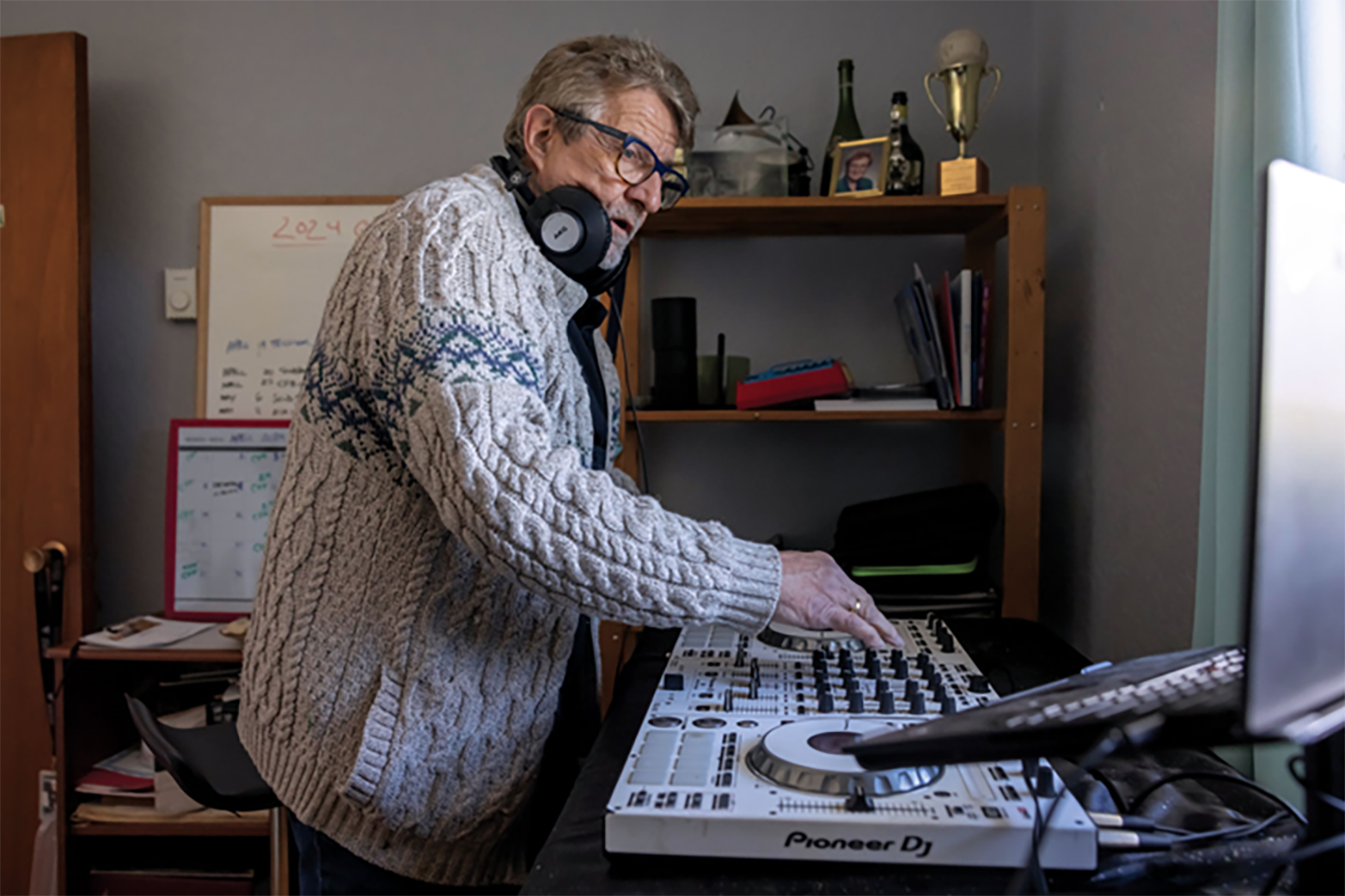Injured worker grooves to a different beat
Growing up in Victoria, Rod Mack would watch in amazement as skydivers floated down toward the beach at the annual Oak Bay Tea Party. When he was old enough, he and some friends decided to try it — and Mack was instantly hooked.
By Tanya Colledge
“There’s no better feeling than freefalling,” Mack says. “Skydiving came naturally to me, so it was even more fun because I was good at it.”
Mack went on to obtain various levels of skydiving licences and compete at the Canadian championships. He became one of the top four skydivers in the country and competed four times in the world championships. Eventually, his passion turned into a part-time gig teaching skydiving lessons and conducting demonstration jumps on the weekends.
“Getting to turn a hobby into a job was a dream come true,” he says.
In 2003, Mack was hired to teach advanced freefalling skills to doctors on military deployments. After four days of training, Mack was demonstrating a jump when things took a tragic turn. Unable to get out of his dive formation before landing, he crashed, hitting the ground at 60 kilometres per hour. He sustained a double compound fracture in his left leg and was flown from Saanich Peninsula Hospital to Victoria General Hospital for an 11-hour surgery.
He woke up from a coma five weeks later to find out he had been partially paralyzed on his left side and had suffered a traumatic brain injury. The doctors told him he’d never walk properly and, due to the length of his coma, he’d have to relearn many basic functions such as breathing and eating.
It was going to be an uphill battle.
Finding a new rhythm
Thanks to support from WorkSafeBC and his rehabilitation team, Mack worked hard to relearn activities of basic daily living and eventually went on to requalify for his driver’s licence. “It took me eight years to get my licence back, even after a neuropsychologist said I would never drive again,” he says. “Faced with the prospect of riding the bus, I kept at it.”
One short year after his accident, Mack — who had been a professional deejay for over 40 years and built a career spinning tracks at the biggest nightclubs in Victoria — realized a lifelong dream from his teens by starting up his own deejay business with support from WorkSafeBC’s Vocational Rehabilitation (VR) Services.
VR consultant Andrew Leo says Mack was extremely motivated throughout his recovery and return to work, and he exceeded expectations for what he’d be able to accomplish given his severe injuries.
“When you see someone who is so driven, you want to make sure you don’t get in their way and that you support them as far as they can go,” Leo says. “People can get down when they don’t have anything in life that motivates them. Rod was so excited about his business that it fuelled his drive to succeed while bringing joy and satisfaction to his life.”
Over the years, the VR Services team supported Mack with various courses such as social media marketing, business development, and graphic design to help him grow and expand his business. Today, DJ Daddy Mack Sound and Design is one of the most sought-after deejay companies in Victoria, providing music services to 75 different events in 2023 alone.
“Before my accident, deejaying was my life and I was really good at it,” Mack says. “Even with all my rehab, I didn’t know what getting back into this line of work would look like for me due to the ongoing effects of my brain injury. WorkSafeBC helped me diversify my skills to create a sustainable business that worked with my limitations and allowed me to achieve my goals.”
Spinning a passion into successful work
Mack says it took five years before he admitted to himself that he was disabled — not because he was in denial, but because he didn’t want that label to hold him back from doing what he loved.
“You have to look inside yourself and decide what you want out of life,” he says, adding that making people happy through music and dance brings him great joy and satisfaction. “If you stop and give in to your injuries, then you won’t be happy. You must strive beyond your limitations and never give up.”
Leo says success stories like Mack’s are why supporting workers in their return-to-work journeys is so important following an injury.
“Work is so much more than just getting a paycheque. It gives purpose to people’s lives and helps them feel part of society,” he says. “Rod’s story is a great example of why it’s important to meet people where they’re at. We supported him in taking many small steps over the years, which have turned into a successful and fulfilling career and life. Everything he has accomplished is because he pushed himself; there’s a great sense of pride in that.”
This information originally appeared in the Summer 2024 issue of WorkSafe Magazine. To read more or to subscribe, visit WorkSafe Magazine.

